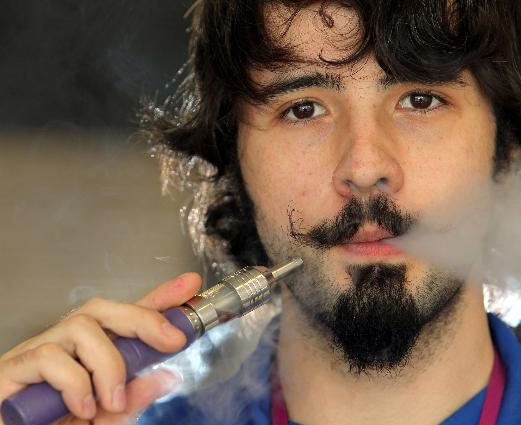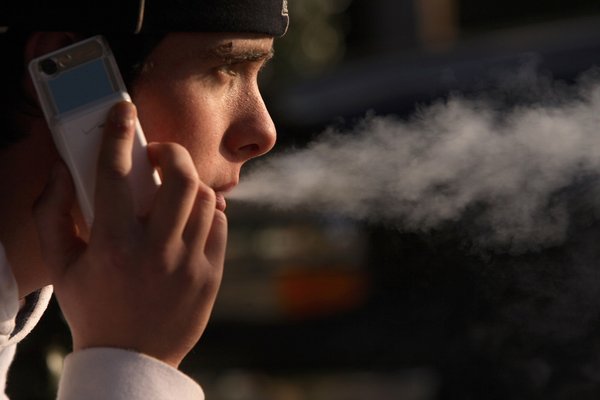E-Cigarette Sales to Minors: Hooking a New Generation?
Margaret I. Cuomo, M.D., HuffPost Healthy Living Blog
“Vaping” is the term used by many middle and high schoolers to describe the inhalation of vapors from an electronic cigarette. Celebrities have advertised e-cigarettes in advertisements and in the movies, and until now, it has been legal for a teenager to purchase them.
In April, 2014, the FDA issued a document in the Federal Register, which would regulate electronic cigarettes nationally as a tobacco product, including age restrictions similar to those for conventional cigarettes. The proposed rule will be enforceable once it is finalized. The American Medical Association, the American Lung Association, and the American Association for Cancer Research are all in support of the FDA’s announcement.
This proposed regulation will also include cigars, pipe and water pipe tobacco, nicotine gels and some dissolvable tobacco products, and anything else that meets the definition of a “tobacco product” according to the Tobacco Control Act.
At this point, the FDA will not restrict flavored e-cigarettes or advertising on television or print media. Hopefully those restrictions will follow soon, because Gummy bear, Fruit Loop and bubble gum flavors clearly target middle and high school students. Only menthol is permissible as a flavor for conventional cigarettes, as mandated by the Tobacco Control Act.
Originally, e-cigarettes were designed as an aid to quit smoking conventional cigarettes.
Nicotine is a highly addictive substance, and is present in most e-cigarettes.
E-cigarettes also contain cancer-causing nitrosamines and diethylene glycol, a toxic chemical found in anti-freeze. Are they effective in helping people quit smoking? Until large, randomized controlled trials are conducted, no one will know for sure.
We do know that e-cigarette manufacturers have been very clever in marketing to middle- and high-school students with colorful packaging, fun flavors and cool accessories.
The Centers for Disease Control and Prevention (CDC) reported in September, 2013 that the use of electronic cigarettes doubled in young people between 2011 and 2012, increasing to 10 percent for high school students, and 2.7 percent for middle schoolers. In total, 1.78 million United States students have used e-cigarettes as of 2012.
Should we allow manufacturers to entice our youth with a nicotine-delivery device that can lead to addiction to conventional cigarettes?
Some researches warn that e-cigarettes are a gateway device for nicotine addiction among youth. In a study of nearly 40,000 youth around the USA, the authors, Lauren M. Dutra, ScD and Stanton A. Glantz, PhD, of the Center for Tobacco Control Research and Education at UCSF concluded that, “Use of e-cigarettes does not discourage, and may encourage, conventional cigarette use among U.S. adolescents.”
We have come too far, and battled far too long with the tobacco industry, to make the mistake of trusting the e-cigarette manufacturers to do what is right for America’s children. How long was it before the tobacco industry would admit that smoking causes cancer?
Dr. Janie Heath, Associate dean and professor of nursing at the University of Virginia School of Nursing, and an expert on the effects of tobacco on smokers, offers this insight into the problem: “When we look at 95 percent of individuals that smoke cigarettes, they all started that initiation before age 21. So, there’s the likelihood of these younger ones starting on electronic cigarettes, and wanting to have more and more of a hit.”
Dr. Heath also warns that “It’s harder to help an individual quit smoking than it is to get them off crack cocaine, heroin or any of the other drugs.”
Hopefully celebrities will resist the allure of advertising e-cigarettes in magazines, and also in movies, knowing that their endorsement have a powerful effect on teenagers.
Where are the famous athletes. actors and athletes who are willing to say: “There’s nothing cool about smoking or vaping, because there is nothing cool about cancer”?
While we wait for the scientific data to prove the harms of vaping, let’s protect our middle and high schoolers from a lifelong addiction and a high risk of cancer.
http://www.huffingtonpost.com/margaret-i-cuomo-md/healthy-living-news_b_5213382.html?ncid=fcbklnkushpmg00000063


